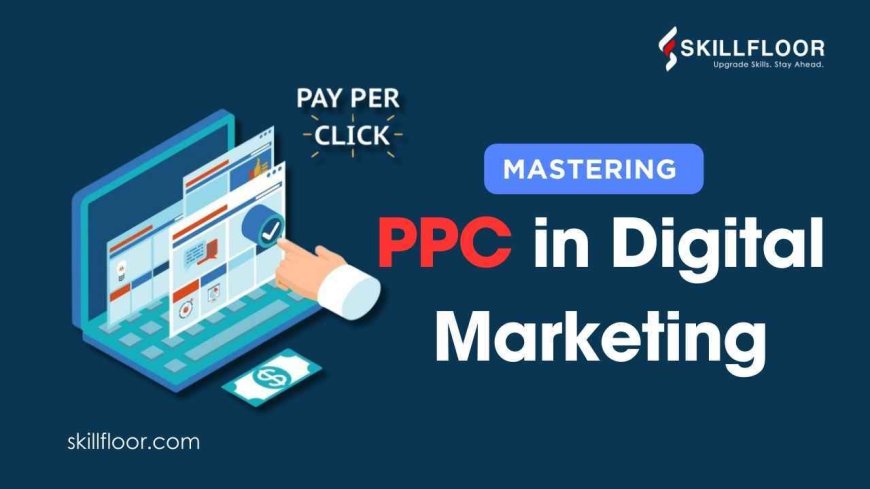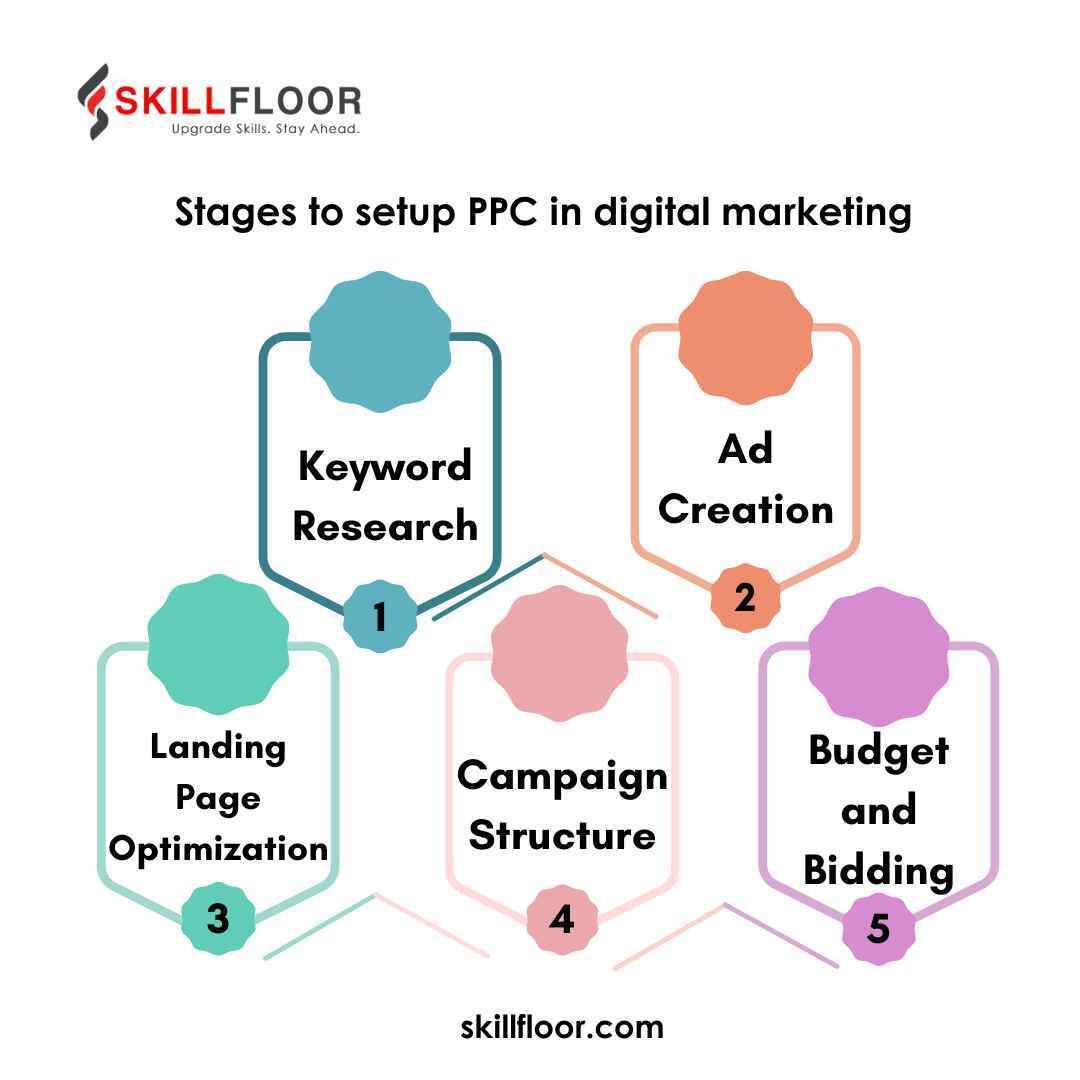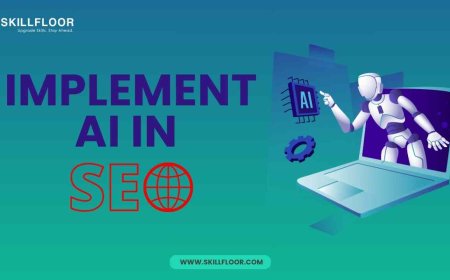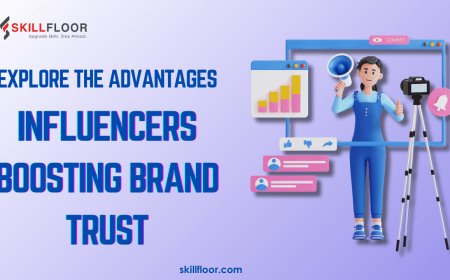Mastering PPC in Digital Marketing
Explore PPC (Pay-Per-Click) advertising in digital marketing. Learn strategies, tips, and best practices to maximize your ROI and traffic to your website.

Hi there! If you want to succeed in today's competitive online world, you must learn PPC in digital marketing. Your company can be completely transformed by knowing how to use PPC in digital marketing to drive targeted visitors and optimize your return on investment. Discover a variety of tactics that can improve your campaigns as you dive more into the world of PPC in digital marketing, from choosing the best keywords to creating eye-catching ads. To help you understand the basics of PPC in digital marketing, this article will walk you through both the fundamentals and more complex strategies. PPC courses in Bangalore can be a great approach for people who are keen to learn more, meet professionals in the field and obtain practical experience. The knowledge and abilities gained from these courses are essential for mastering PPC in digital marketing. Regardless of your level of experience with PPC, our approachable style will make the process joyful and fulfilling.
Understanding PPC: The Basics
Online advertisers that use pay-per-click, or PPC, advertising must pay out money each time their ad is clicked. In basic terms, it's a method of purchasing site visits rather than making an effort to "earn" them naturally. Consider it a quick way to make sure the appropriate individuals see your material when they need it.
The idea is simple: You place a bid on particular keywords that potential customers might use to find your kind of goods or services. When someone searches for such terms, your ads show up on the search engine results page (SERP). You pay the search engine a little charge if they click on your advertisement.
The Evolution of PPC
Since its inception, PPC in digital marketing has advanced significantly. The first instance of pay-per-click (PPC) advertising dates back to 1996, when Planet Oasis, an organization, charged customers one penny for each click. In the year 2000, Google launched AdWords, completely altering the PPC market. With the use of this platform, marketers could produce text-based advertisements that showed up on Google's search results pages.
PPC has developed into an advanced and essential part of digital marketing strategies over the years. Due to their ability to provide advanced targeting decisions, a wide range of ad formats, and extensive analytics for tracking campaign performance, platforms such as Google Ads and Bing Ads have established themselves as industry leaders.
Setting Up a PPC Campaign
A good PPC campaign requires the following essential stages to be set up PPC in digital marketing:

Keyword Research: Do keyword research to find the terms that people in your target market use. You may locate high-volume, relevant keywords for your organization with the help of tools like Google Keyword Planner.
Ad Creation: Create eye-catching advertisements that convince viewers to click. This entails creating compelling copy and picking relevant photos or videos.
Landing Page Optimization: Making sure your landing pages are pertinent and optimized to turn visitors into buyers is known as landing page optimization. Here's where the magic happens: a flawless user experience can greatly increase the effectiveness of your campaign.
Campaign Structure: Divide your campaign with ad groups that focus on particular keyword combinations. This keeps your content relevant and raises your quality rating.
Budget and Bidding: Establish a daily spending plan and choose your approach to bidding. You have the option of automated bidding, in which the platform modifies bids by performance targets, or manual bidding, in which you place your own bids.
Bidding and Budgeting Strategies
Getting the most out of your PPC in digital marketing ads requires perfecting the art of bidding and budgeting. Here are some strategies to think about:
-
Manual Bidding: This method allows you complete control over your offers, but it requires more active observation.
-
Automated Bidding: Websites such as Google Ads provide automated bidding techniques that modify your bids according to the objectives of your campaign. You could concentrate on increasing click-through rates, aiming for a particular cost-per-acquisition (CPA), or increasing conversion rates, for instance.
-
Budget Allocation: Distribute your funds sensibly among several ad groups and campaigns. If you want to collect more data and insights, you might want to start with a smaller budget and increase it gradually.
-
Bid Adjustments: To make sure you're reaching the proper audience, modify your bids according to variables like location, device, and time of day.
Analyzing and Optimizing PPC Performance
Your PPC in digital marketing performance analysis and optimization are continuous processes. This is how to do it effectively:
Track Key Metrics: Keep an eye on key performance indicators (KPIs), including cost per click (CPC), conversion rate, click-through rate (CTR), and return on ad spend (ROAS). You can gain insight into the effectiveness of your efforts with these measures.
A/B Testing: Test various landing pages, pictures, and ad copy often to see what works best for your target demographic.
Optimize for Quality Score: Aim for a high-quality score. Google uses a metric called Quality Score to assess the relevancy and caliber of your keywords and ads. Better ad placements and reduced CPC might result from a greater Quality Score.
Use Analytics Tools: Make Use of Analytics Tools Use resources like heatmaps and Google Analytics to learn more about user behavior and ad effectiveness.
Advanced PPC Techniques
After mastering the fundamentals, it's time to investigate some advanced PPC techniques:
-
Remarketing: Reach out to people who have come to your website before but left without making a purchase. This can be a very successful strategy for attracting new clients.
-
Audience Targeting: To reach particular demographics, interests, and behaviors, use precise audience targeting.
-
Dynamic Search Ads: Ads that automatically match your ad to queries that are pertinent to the information on your website are known as dynamic search ads.
-
Responsive Search Ads: Make responsive search advertisements that change to provide more content and pertinent information to your target audience.
-
Geotargeting: To efficiently reach local customers, customize your campaigns to specific geographic places.
The Future of PPC in Digital Marketing
PPC in digital marketing appears to have a very bright future. PPC platforms are growing increasingly user-friendly and effective as a result of developments in AI and machine learning. This is what to anticipate:
-
Automation and AI: Watch for an increase in automation solutions that use AI to forecast trends, optimize campaigns in real-time, and more precisely alter bids and budgets.
-
Voice Search: PPC strategies will need to change to support lengthier, conversational queries as voice search usage grows.
-
Visual and Video Ads: The popularity of apps such as Instagram and TikTok highlights the value of visual material. PPC will keep developing to incorporate more interesting ad formats.
-
Privacy and Data Regulations: PPC strategies will need to change in order to ensure compliance with laws like the CCPA and GDPR, as worries about data privacy grow.
Mastering PPC in digital marketing allows companies to reach a wider audience and increase ROI. You may effectively improve your campaigns by learning and putting into practice different PPC methods, as well as by keeping up with changing trends. Learning PPC is a great step forward, whether you're just getting started or hoping to advance.






























































